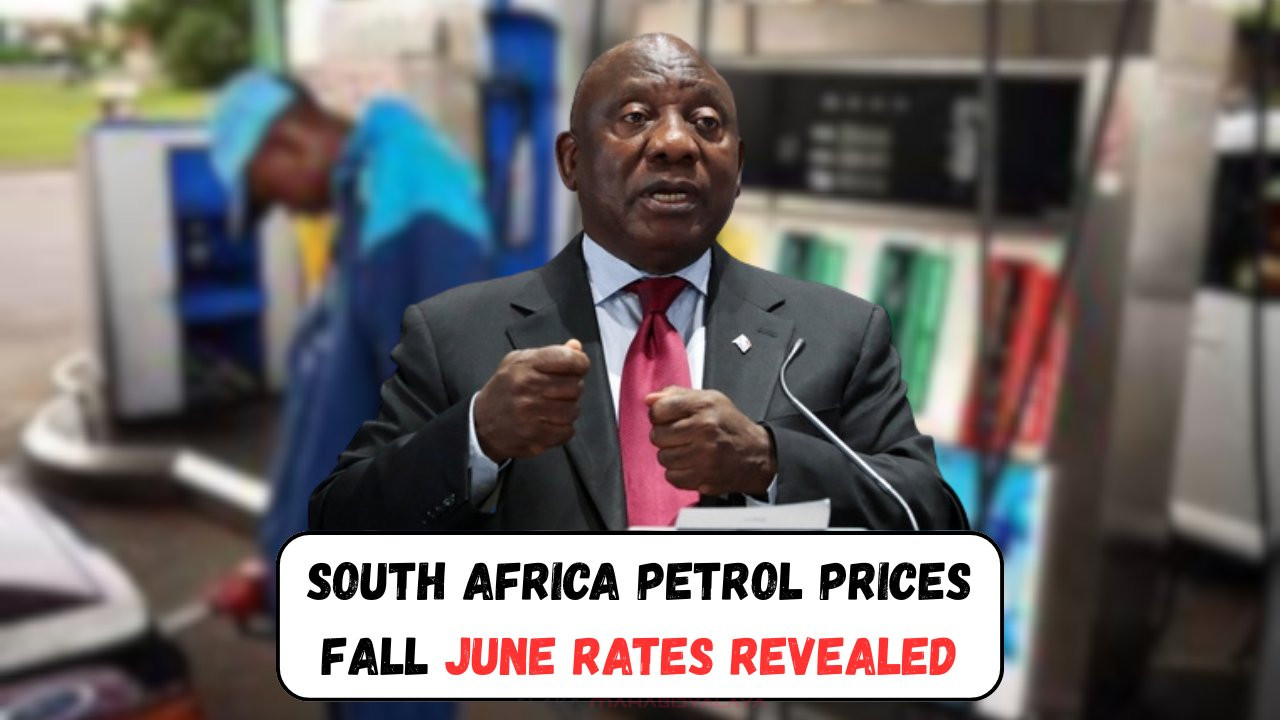Fuel Prices Drop in June: South African motorists are set to experience some relief at the pumps as fuel prices decline this June. This announcement comes as welcome news for drivers across the country, who have been grappling with fluctuating fuel costs for months. The official reduction is expected to provide a significant respite, easing the financial burden on consumers and businesses alike.
Impact of Fuel Price Reduction on South Africans
The decrease in fuel prices is poised to benefit various sectors and individuals across South Africa. With lower fuel costs, transportation expenses will decrease, leading to potential savings for businesses that rely heavily on logistics and transport. Moreover, everyday commuters can expect to save on their monthly fuel expenditure, allowing them more flexibility in their personal budgets.
- Reduced transportation costs for businesses
- More affordable commuting for individuals
- Potential decrease in goods and services prices due to lower transport costs
- Improved economic activity as savings are redirected into the economy
- Enhanced consumer spending power
Driving Factors Behind the Fuel Price Drop
Global Oil Market Dynamics: A significant factor contributing to the reduction is the global oil market dynamics. A combination of increased supply and stable demand has led to lower international oil prices, which directly impacts local fuel costs.
| Month | International Oil Price (USD/barrel) | Local Fuel Price (ZAR/litre) | Change (%) |
|---|---|---|---|
| April | 85 | 22.50 | – |
| May | 82 | 21.90 | -2.7% |
| June | 78 | 21.00 | -4.1% |
| July | 76 | 20.50 | -2.4% |
| August | 79 | 20.80 | +1.5% |
| September | 77 | 20.30 | -2.4% |
| October | 75 | 20.00 | -1.5% |
In addition to these global dynamics, the local currency’s stability against the US dollar has played a role in mitigating further increases in fuel prices.
Economic Implications of Fuel Price Changes
The economic implications of fluctuating fuel prices are far-reaching. As fuel prices decrease, the cost of transportation and production lowers, potentially leading to reduced prices for goods and services. This can stimulate economic growth by increasing purchasing power among consumers.
Furthermore, the reduction in fuel prices can lead to a decrease in inflation rates, as transport costs are a significant component of the Consumer Price Index (CPI). Lower inflation rates can result in more stable economic conditions, encouraging investment and spending.
Businesses, particularly those in the transport and logistics sectors, will likely experience improved profit margins as a result of reduced operational costs. These savings can be reinvested into business expansion and improvement, contributing to job creation and economic development.
Overall, a reduction in fuel prices can foster economic stability, enhance consumer confidence, and improve the country’s overall financial health.
Government Measures to Regulate Fuel Prices
South Africa’s government has implemented several measures to regulate and stabilize fuel prices. These include:
- Adjusting fuel levies and taxes
- Monitoring global oil prices and exchange rates
- Collaborating with international partners to ensure stable supply
- Investing in alternative energy sources to reduce dependency on oil
- Implementing policies to enhance energy efficiency
Transitioning to Renewable Energy: In the long term, the government is focusing on transitioning towards renewable energy sources. This move aims to diversify the country’s energy portfolio, reducing dependency on fossil fuels and mitigating the impact of volatile oil prices on the economy.
Investments in solar, wind, and other renewable energy technologies are expected to increase, contributing to a more sustainable and resilient energy sector.
FAQs on Fuel Price Reduction
1. How much has the fuel price decreased in June?
The fuel price has decreased by 4.1% in June, bringing relief to South African drivers.
2. What factors have contributed to the decrease in fuel prices?
Global oil market dynamics and local currency stability have significantly influenced the reduction in fuel prices.
3. How will the decrease in fuel prices impact the economy?
Lower fuel prices can reduce transportation costs, decrease inflation rates, and enhance consumer purchasing power, stimulating economic growth.
4. What measures is the government taking to stabilize fuel prices?
The government adjusts fuel levies, monitors global oil prices, and invests in alternative energy sources to stabilize fuel prices.
5. Are there long-term solutions to mitigate fuel price volatility?
Yes, transitioning to renewable energy sources is a long-term solution to reduce dependency on fossil fuels and stabilize energy costs.
Departmental Contact Details
South African Department of Energy
Email: [email protected]
Helpline: 0800 001 234
Petroleum Agency SA
Email: [email protected]
Website: www.petroleumagencysa.com
Automobile Association of South Africa
Email: [email protected]
Website: www.aa.co.za






